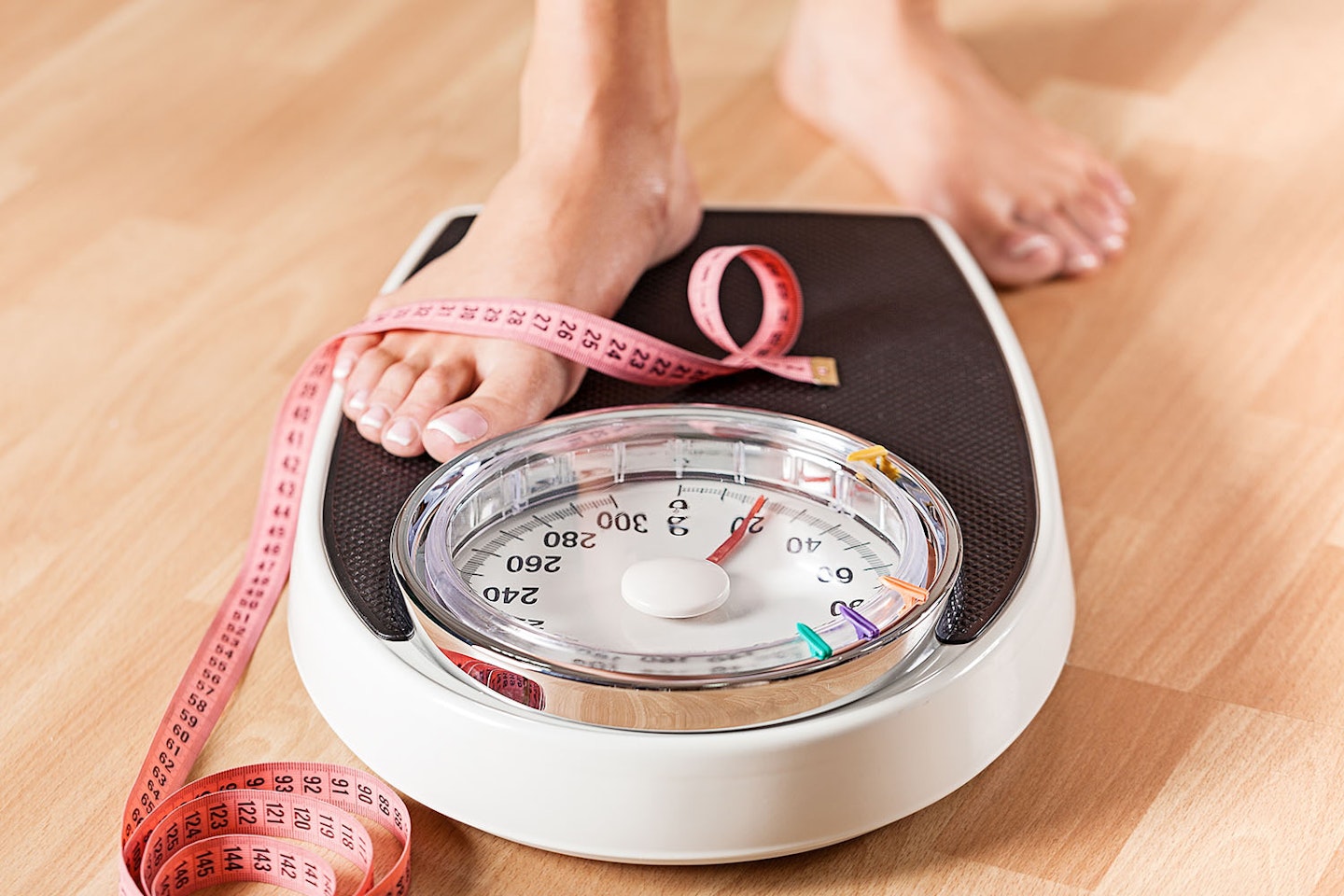Research has found that many Brits are struggling financially and are sacrificing many things just to afford food
More than four in 10 Brits are struggling with money and can barely afford to put food on the table.
According to a study carried out by OnePoll.com, 43% of people are short on cash just to pay the bills for seven months of the year - but a quarter of people staggeringly said that they're short on cash every single month.
This means that the average adult is forced to turn to credit cards or overdrafts just to make it to payday for four months every year, with one in 10 admitting it's the same every month.
GALLERY: 7 ways to improve your chances of getting pregnant
7 ways to improve your chances of getting pregnant - SLIDER with cover pic
 1 of 8
1 of 8pregnant
 2 of 8
2 of 81) Watch your weight
Being both underweight or overweight can hinder your chance of getting pregnant. The National Institute for Health and Care Excellence states that women over BMI 30 are likely to take longer to conceive and weight loss will help chances of conception. Women with a Body Mass Index (BMI) of 35+ can have increased risk of polycystic ovary syndrome (PCOS), which is a common cause of infertility. Mild weight loss would improve PCOS symptoms and significantly increase the chance of conceiving.Similarly, being underweight (with a BMI of 19 or less) can lead to an irregular – or lack of – menstrual cycle due to hormone disruption, preventing the ovaries from releasing an egg each month. For women who are underweight, putting on weight will improve their chance of conception.Dr Gorgy says: "Whilst the BMI is only a guide, research does show that you'll have a better chance of conceiving if your BMI is between 20-25."
 3 of 8
3 of 82) Exercise (but not too much!)
Exercise is incredibly important for general health and body function, so if you've got an active hobby or are a fan of the gym, that's great news. Exercises like yoga and swimming can be particularly good for relieving stress, however intense exercise has been shown to have a detrimental effect on fertility. The Norwegian University of Science and Technology and the Emory University in Atlanta published a study which showed that women who performed high-frequency high intensity exercise had a lower rate of fertility. Dr Gorgy says: "If you're a fan of High Intensity Interval Training (HIIT) workouts you can increase your chance of conceiving by swapping those sweaty sessions for something less intensive."
 4 of 8
4 of 83) Reduce exposure to chemicals
Exposure to hazardous chemicals at the workplace can lead to reduced fertility. Thousands of chemicals are used on a daily basis, from cleaning products, pesticides, paints and varnishes. If you work in an environment where you are in contact or near toxins it is advisable to speak with your manager about reducing your exposure.
 5 of 8
5 of 84) Have more sex!
Although it's important to know when you are ovulating and to have sex during this period, put simply, having more sex will increase your chances of getting pregnant. Putting it in the diary can take all the fun out of it can place unnecessary pressure on you and your partner. To optimise your chance of conceiving, aim to have sex around every 2-3 days. Enjoy – and don't forget to have fun!
 6 of 8
6 of 85) Stop harmful habits
Alcohol can contribute to lack of ovulation and absence of periods which affect a woman's fertility. Many studies have shown that even light drinking can have an affect on fertility. The Chief Medical Officers' alcohol unit guidelines recommend that women trying to have a baby should not drink alcohol at all.Smoking is another vice that can affect chances of natural conception. Women who smoke are more likely to have fertility problems and take longer to get pregnant than non-smokers. NICE advise that women who smoke should be informed it is likely to reduce their fertility – even passive smoking is likely to affect chance of conceiving. For men, there is an association between smoking and reduced semen quality. Dr Gorgy says: "Stopping smoking will improve general health and increase the likelihood of conceiving, and this is often one of the first changes we suggest our patients make to their lifestyle."
 7 of 8
7 of 86) Stop stressing
There's no doubt that stress can affect many areas of life, from relationships and libido to fertility. According to a study, women with the highest levels of stress hormone in their saliva were less likely to get pregnant. The study from Ohio State University highlighted that stress doubles the risk of infertility in women. Sometimes the anxiety of trying for a baby itself can create stress. It's important to take time to relax and look after yourself, both physically and mentally, if you are trying to conceive.
 8 of 8
8 of 87) Eat well
Regardless of your weight, diet can have an impact on fertility, and eating plenty of fruit and vegetables ensures that your body have the vitamins and minerals it needs to support cell reproduction. It's advisable to eat a good selection of proteins (lean meat, pulses, beans, nuts) and complex carbohydrates (brown rice, oats, quinoa).Whilst some couples can get pregnant right away, it's not unusual for couples to try for 9 months or more. If you've been trying for 12 months, it may be time to visit your GP or see a fertility expert for a fertility MOT to help gauge if there are any stumbling blocks on your road to becoming parents.
Six in 10 went as far as to say that they'll never be able to make ends meet on their current salary.
Shockingly, 49% of people blamed their financial struggles on the rising cost of food, with another 46% say it's because of utility bills.
A worrying 13% of people said their pensions don't stretch far enough, and 15% say they're left unable to provide for their family.
One in 10 people say they can't afford to put fuel in their car, and 15% have avoided turning their heating on simply because they don't have the money.
WATCH: Closer Confidential - your sneak peek into this week's issue...
What do you make of these stats? Can you relate to the problems that some Brits are facing? Let us know over on Facebook and Twitter.
READ MORE...
Third of Brits believe fruit and veg can fend off illness - but does an apple a day really work?
